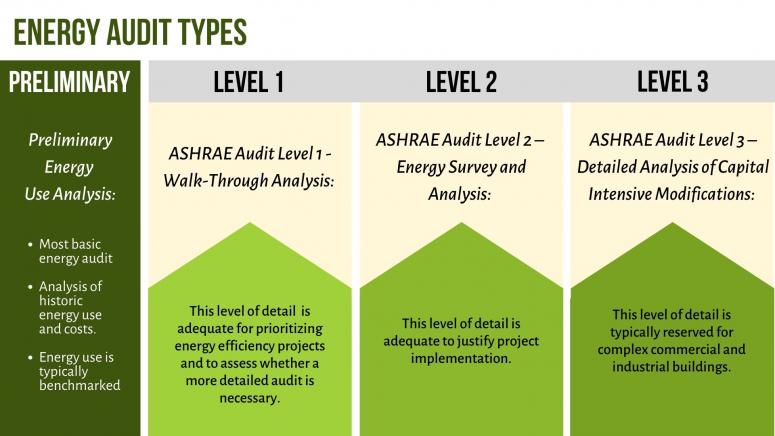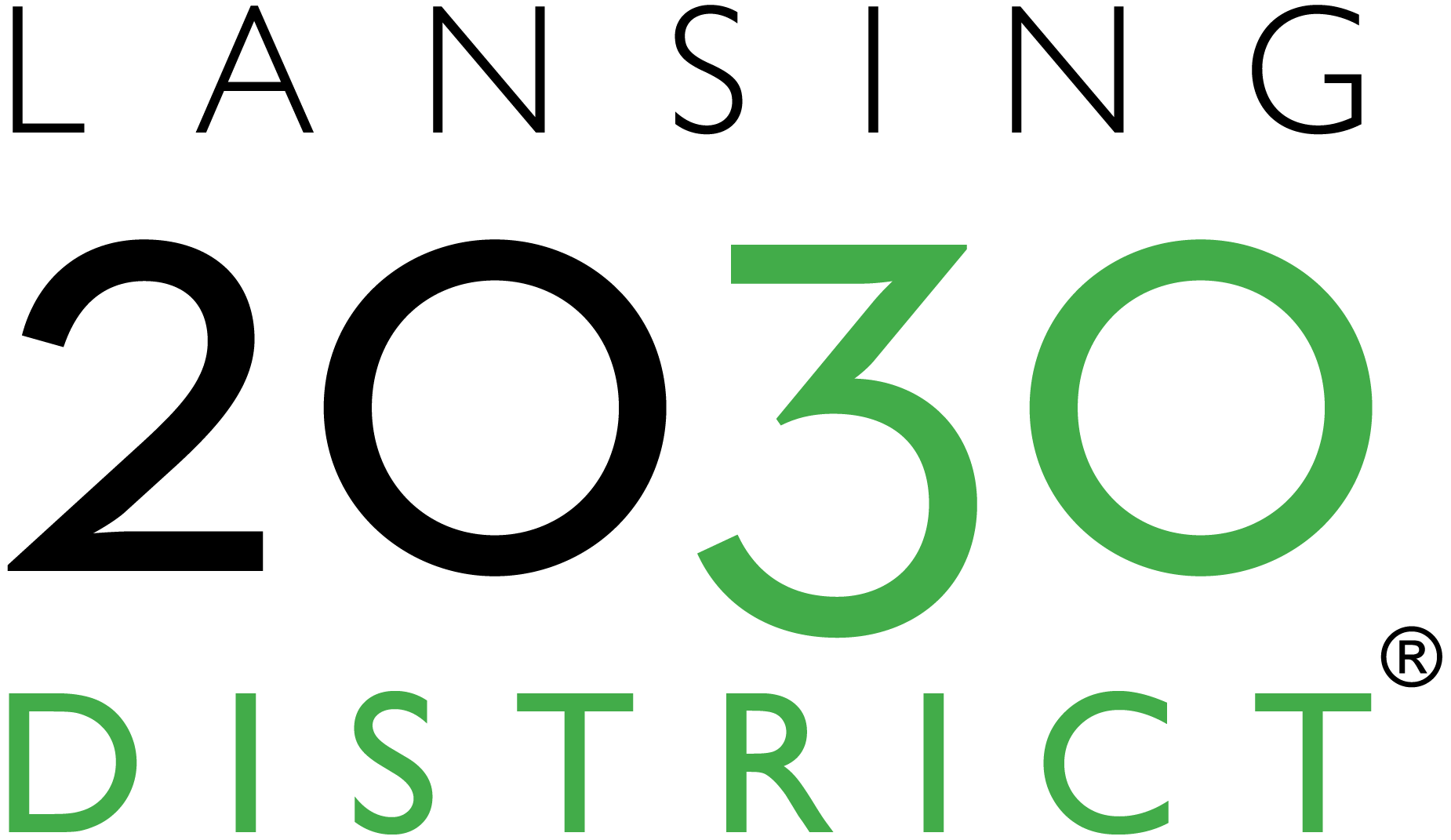Energy audits can
Reveal energy usage patterns
Identify saving opportunities
Elucidate the map of your energy use


Energy audit types continued

- The basic starting point for building energy optimization
- Involves interviews with select facility staff
- A review of utility bills or other operating data
- A walkthrough of the facility
- The goal is to identify glaring areas of energy inefficiency.
- The data is compiled and used to complete a preliminary report detailing low-cost/no-cost measures and potential capital improvements for further study in subsequent audits.
This level of detail is adequate for prioritizing energy efficiency projects and to assess whether a more detailed audit is necessary.

This includes the ASHRAE Level 1 analysis, and adds:
- Detailed energy calculations and financial analysis of proposed energy efficiency measures.
- Energy consumption is broken out by end-use, identifying areas that present the greatest efficiency opportunities.
- Utility rates are analyzed to determine if there are rate change opportunities.
- Key building representatives are interviewed for insights into building operational characteristics, potential problem areas, and to define financial and non-financial goals of the audit.
This level of detail is adequate to justify project implementation.

- Engineering analysis of the potential capital-intensive projects identified in the ASHRAE Level 2 Analysis.
- More detailed field data gathering and more rigorous analysis.
- Existing utility data is supplemented with sub-metering of major energy-consuming systems and monitoring of those system’s operating characteristics.
This level of detail is typically reserved for complex commercial and industrial buildings.
Michigan State University Free Assessment Opportunity
Taken from the Industrial Assessment Center MSU website:
“If your company is determined eligible for an assessment, the MSU IAC team will conduct a one-day site visit after a pre-assessment and utility data are received. Recommendations for energy, waste, and production cost reductions are expected within two months.”
For more information and to determine if you are eligible please visit their website here.
GR HQ: Transformation from Ordinary Building to Safe Haven
Let the Energy Savings Flow at Fountain Street Church
Visionary Partners



District Partner

